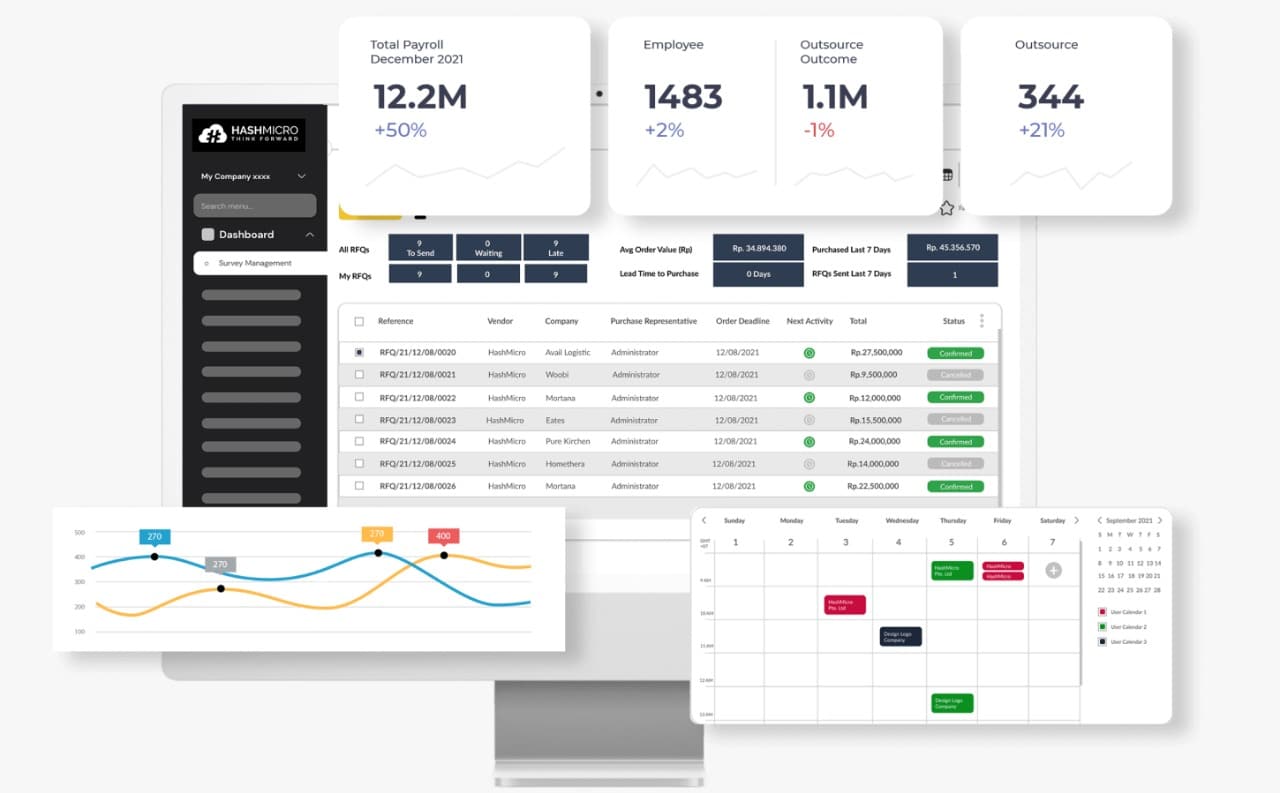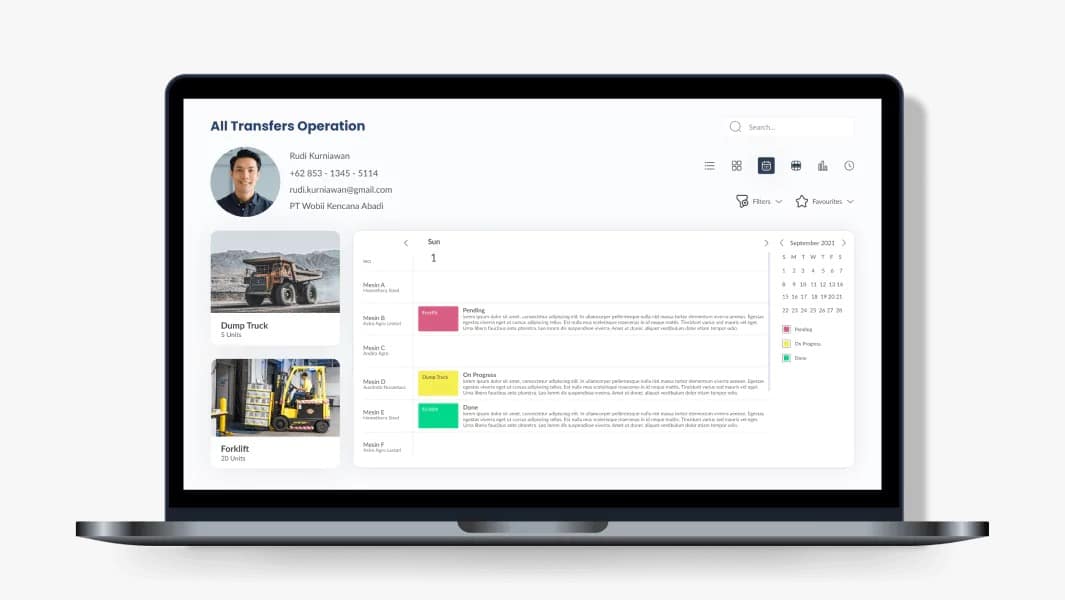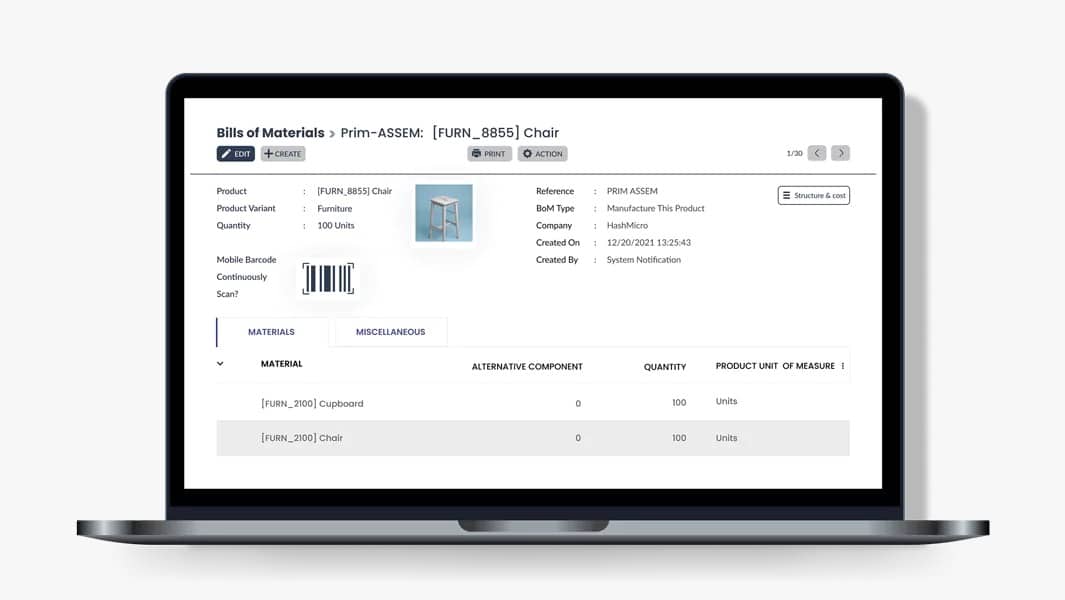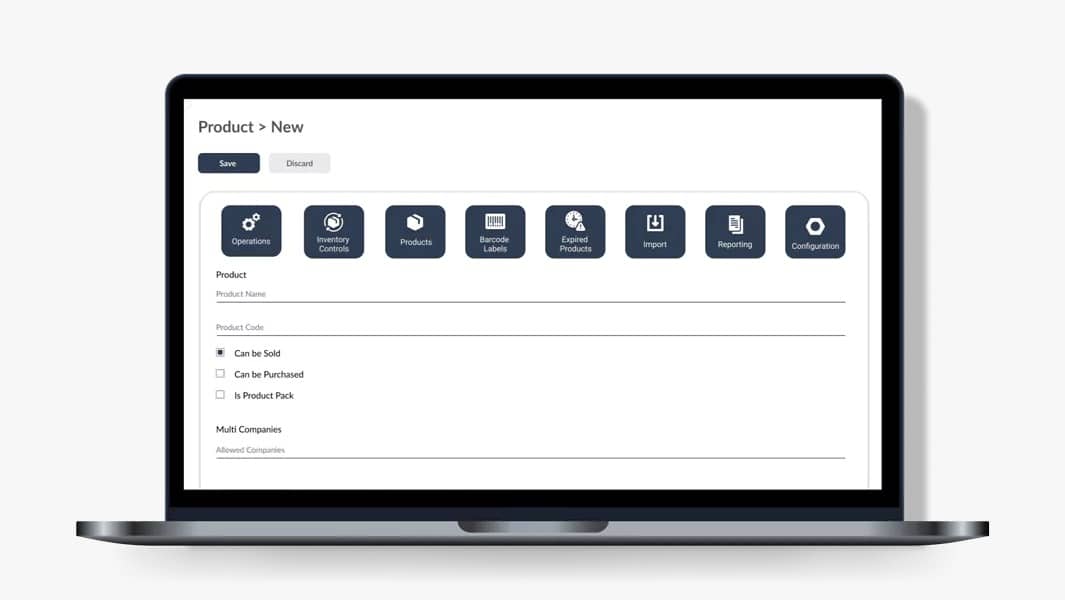As a basic need in human life, the fabric is constantly produced to fulfill the market demand and needs. In other words, fabric manufacturing will never stop. Instead, the growth of the fashion industry impacts fabric production. The fabric business keeps getting bigger in scale and range. Therefore, many companies are switching to using automated ERP software or manufacturing application to simplify complex business processes.
With the development of the fabric business, it is no longer convenient to keep using manual methods. Managing many aspects of fabric production, such as raw materials and supply chain management, may be challenging to do manually. Thus, a complete manufacturing system provides automation for your business. You can achieve high efficiency and gain more profit by using the best manufacturing system.
Here is a complete review of the main benefits, features, and integration of HashMicro’s manufacturing software.
Related article: How to Overcome Production Problems in Fabric Manufacturing

Why Your Fabric Business Needs Hash Manufacturing Automation
Apart from high production costs and complex processes, fierce competition from the market forces fabric factories to raise their competitive edge. Manually running production and business processes will not benefit the company as it will most likely slow down the entire process. However, manufacturing automation software from HashMicro comes with robust features to assist factories in producing goods. Hash Manufacturing Automation helps you cut down the costs, time, and effort by automating various processes.
Advanced technology has brought many manufacturing system providers into the market. While most manufacturing systems are hard to operate, Hash Manufacturing Automation serves an easy and user-friendly UI/UX design. The complex interface of the manufacturing system can potentially be challenging, mainly because it takes much time just to comprehend how it works. Nonetheless, Hash Manufacturing Automation allows its user to manage this system after only a few training sessions. Completely understanding the features will enable you to control all manufacturing aspects, including managing large amounts of data accurately.
A solid manufacturing system can satisfy all manufacturing barriers. Fortunately, Hash Manufacturing Automation can solve manufacturing problems and provide the best user experience. Moreover, HashMicro also comes with a customizable feature to fulfill the company’s needs. Customization is an important feature that you should look for when implementing manufacturing software. As your company expands and grows with dynamic workflows, HashMicro’s manufacturing system is adjustable to fit your fabric company’s scale. Fit your budgeting for manufacturing software by learning more about the pricing scheme calculation beforehand.
How Hash Manufacturing Automation Benefits Your Business
Implementing the comprehensive manufacturing automation software from HashMicro benefits the company in various aspects. Budget calculations, scheduling, and cutting costs are a few of the features that will improve the productivity of fabric factories. Here are the benefits you will get by implementing Hash Manufacturing Automation.
Timely production activities
The flooding of customer demands can sometimes make the production process goes out of hand. Especially when combined with problems of machines, materials, and labor that happen unexpectedly. Adopting Hash Manufacturing Automation helps you fulfill customer demands efficiently. This is possible due to effective management and complete control over machine usage, materials tracking, and staff management.
Related article: Main Benefits of ERP Software for the Manufacturing Industry
Automate WIP calculations
Determining costs and budgeting for producing goods are essential for manufacturers. With Hash Manufacturing Automation, Work in Progress (WIP) costs can be calculated automatically and integrated into other systems. As a result, fabric factories will manage the budgeting as they know what production costs are incurred. As a result, fabric factories can easily manage budgeting because they understand what production costs are expensed.
Controlled inventory and procurement
Hash Manufacturing Automation’s exceptional capabilities will help you handle a wide range of requests for your fabric business. Monitor stock levels promptly and automate the procurement system to ensure that there are always enough supplies to meet the factory’s needs.
Comprehensive reports
There is a way to stay productive and increase production efficiency amid high demand. By implementing Hash Manufacturing Automation, you can generate accurate production process analysis reports in just a few clicks. Accordingly, the effectiveness of your future production processes will improve.
Key Features of Hash Manufacturing Automation
The main aim of Hash Manufacturing Automation is to streamline production processes and increase efficiency for manufacturers. The main benefits of adopting this software are cutting overhead costs, on-time scheduling, and projecting accurate reports. Therefore, here are the key features of Hash Manufacturing Automation to help you achieve more in your fabric production.
Automatic scheduling
In the manufacturing industry, producing goods on time is essential. Once the production is delayed, the whole goods distribution process will also be disturbed. Nevertheless, HashMicro understands this concern and comes with an automatic production scheduling feature. Tracking machine availability properly and scheduling based on sales with an automated system will boost your fabric production activity. Additionally, Hash Manufacturing Automation allows comprehensive WIP tracking that complements an effective manufacturing cycle.
Bill of Materials
Cost controlling allows your company to increase profit margins. Reducing production costs will increase company cash flow and increase budgeting accuracy. With the Bills of Materials, Hash Manufacturing Automation allows you to quickly and thoroughly track and calculate the production cost. Moreover, this feature provides visibility to all incoming Purchase Orders. As a result, you can project your raw material needs and complete the fulfillment of each raw material accurately.
Demand forecasting
Hash Manufacturing Automation comes with seamless data integration on every item. Most importantly, the demand forecasting feature prevents you from producing either too little or too many goods as it allows you to see through the customer demand. Along with this, Hash Manufacturing Automation also enables users to perform quality control and track repair quickly with the help of advanced features.
Related article: 5 Effective Ways to Reduce Your Manufacturing Costs
Hash Manufacturing Automation’s Integrated Modules
Increasing manufacturing efficiency is achievable through integration with various production aspects. Therefore, Hash Manufacturing Automation comes as a complete manufacturing system to help manufacturers simplify their production planning and reporting precisely. Thus, many modules are integrable with HashMicro’s manufacturing software, such as:
- Accounting system: integration with the accounting system will give you the benefit of monitoring the company’s financial condition regardless of time and place. Track your cash flow, income, and costs with a real-time report.
- Procurement system: getting complete control over purchase requisitions from various divisions or branches allows you to know the exact amount of raw materials needed. Therefore, you will reduce the waste of raw materials.
- Sales and CRM system: sales reports are also essential when running your manufacturing business, as they allow you to keep track of sales and income. The CRM system creates offers, sales orders, and invoices with professional templates.
- Inventory management system: managing numerous stock-keeping units or manufactured goods will be easier with the inventory management system module. Hash Manufacturing Automation comes with this privilege to assist you in managing effective warehouse management.
- Human resource system: employees also play an essential part in the manufacturing industry other than technical aspects. Integration with the human resource system (HRM) allows salary and attendance management to increase employee retention rates.
Conclusion
Fabric factories are key players in the economy. However, manufacturing goods may be complicated, especially when your business is getting bigger in scale. That is when comprehensive manufacturing software comes in handy, with its many features to assist fabric manufacturers in growing their business.
Hash Manufacturing Automation provides you with various features and integration that benefit your manufacturing business. If you wish to grow your fabric manufacturing business, implementing Hash Manufacturing Automation will help you increase production capabilities and effectiveness. Additionally, you can learn more about HashMicro’s manufacturing software price scheme calculations beforehand to calculate your budget planning. Experience the benefits of the Hashmicro system with a free demo.


























































